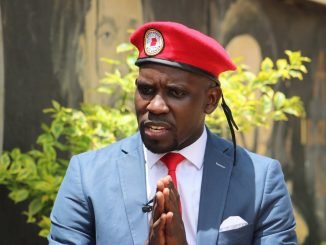
Kampala, Uganda | URN | Mathias Mpuuga Nsamba, who serves as the Leader of the Opposition in Parliament, has voiced significant concerns regarding the future of Uganda. He believes that Uganda’s future remains uncertain due to what he perceives as a deficiency in ‘true democracy.’
In his statement commemorating Uganda’s 61st Independence Anniversary, Mpuuga expressed his disappointment with the nation’s journey since gaining independence. He contends that it serves as a stark reminder to Ugandans of the considerable shortcomings in their transition from colonial rule.
Mpuuga points out that the founding fathers of Uganda aspired to create a nation where citizens would exercise complete control and experience better governance than what the colonialists left behind. However, he argues that Uganda has fallen short in three critical areas.
One major concern highlighted by Mpuuga is the removal of presidential term limits from the 1995 Constitution. This alteration, he believes, has favored the ruling National Resistance Movement (NRM) government, led by President Yoweri Kaguta Museveni, and has had a detrimental impact on the country’s democratic principles.
Additionally, Mpuuga underscores issues related to resource allocation, stating that power often dictates the distribution of national resources. This, in turn, leaves marginalized communities with inadequate access to education, healthcare, and infrastructure.
Furthermore, Mpuuga emphasizes the necessity of decentralizing power from the central government to the regions. He argues that the concentration of power within a small group can lead to disastrous consequences. After 61 years of independence, he believes mechanisms should be in place to address this issue.
Read Also: Uganda’s independence flag hoister died a frustrated man – Widow
Despite this year’s Independence Day celebrations being themed “Sustaining a united and progressive nation: Taking charge of our future as a free nation” and taking place in Kitgum District, Uganda continues to grapple with various challenges such as corruption, human rights violations, nepotism, and sectarianism.
In a televised national address ahead of 61 years of Independence celebrations, President Museveni called on Ugandans to prioritize economic and social prosperity over divisive politics based on identity and personal interests. He emphasized the NRM’s insistence that although Ugandans belong to different tribes and religions, they share similar needs and require access to broader markets for their products to ensure prosperity.
“…the NRM has been insisting that although our people belong to different tribes, religions, etc., they have similar needs and need access to broader markets for their products to ensure prosperity,” Mr. Museveni emphasized.



